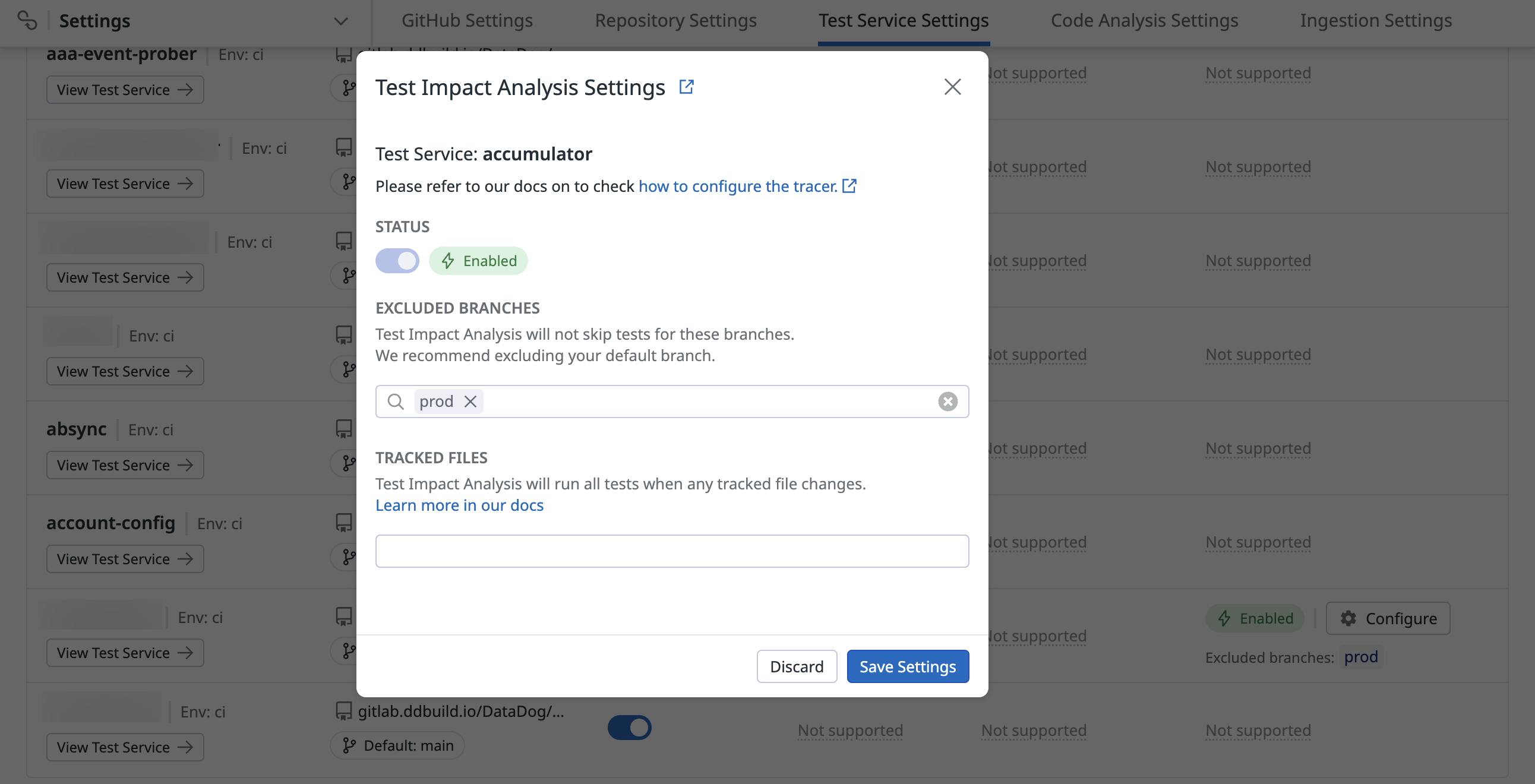- 重要な情報
- はじめに
- 用語集
- Standard Attributes
- ガイド
- インテグレーション
- エージェント
- OpenTelemetry
- 開発者
- Administrator's Guide
- API
- Partners
- DDSQL Reference
- モバイルアプリケーション
- CoScreen
- CoTerm
- Remote Configuration
- Cloudcraft
- アプリ内
- ダッシュボード
- ノートブック
- DDSQL Editor
- Reference Tables
- Sheets
- Watchdog
- アラート設定
- メトリクス
- Bits AI
- Internal Developer Portal
- Error Tracking
- Change Tracking
- Service Management
- Actions & Remediations
- インフラストラクチャー
- Cloudcraft
- Resource Catalog
- ユニバーサル サービス モニタリング
- Hosts
- コンテナ
- Processes
- サーバーレス
- ネットワークモニタリング
- Cloud Cost
- アプリケーションパフォーマンス
- APM
- Continuous Profiler
- データベース モニタリング
- Data Streams Monitoring
- Data Jobs Monitoring
- Data Observability
- Digital Experience
- RUM & セッションリプレイ
- Synthetic モニタリング
- Continuous Testing
- Product Analytics
- Software Delivery
- CI Visibility (CI/CDの可視化)
- CD Visibility
- Deployment Gates
- Test Visibility
- Code Coverage
- Quality Gates
- DORA Metrics
- Feature Flags
- セキュリティ
- セキュリティの概要
- Cloud SIEM
- Code Security
- クラウド セキュリティ マネジメント
- Application Security Management
- Workload Protection
- Sensitive Data Scanner
- AI Observability
- ログ管理
- Observability Pipelines(観測データの制御)
- ログ管理
- CloudPrem
- 管理
.NET 向け Test Impact Analysis
This product is not supported for your selected Datadog site. ().
互換性
Test Impact Analysis は dd-trace>= 2.22.0 にのみ対応しています。ツールのバージョンは dd-trace --version で確認できます。
セットアップ
テストの最適化
Test Impact Analysis を設定する前に、.NET 向け Test Optimization をセットアップしてください。Agent 経由でデータを報告する場合は、v6.40 以降または v7.40 以降を使用してください。
Activate Test Impact Analysis for the test service
You, or a user in your organization with the Intelligent Test Runner Activation (intelligent_test_runner_activation_write) permission, must activate Test Impact Analysis on the Test Service Settings page.

Run tests with Test Impact Analysis enabled
セットアップが完了したら、通常どおり dotnet test または VSTest.Console.exe を使用してテストを実行してください。
dd-trace ci run --dd-service=my-dotnet-app --dd-env=ci -- dotnet testdd-trace ci run --dd-service=my-dotnet-app --dd-env=ci -- VSTest.Console.exe {test_assembly}.dll特定のテストのスキップを無効にする
You can override the Test Impact Analysis behavior and prevent specific tests from being skipped. These tests are referred to as unskippable tests.
テストをスキップできないようにする理由は?
Test Impact Analysis uses code coverage data to determine whether or not tests should be skipped. In some cases, this data may not be sufficient to make this determination.
例:
- テキストファイルからデータを読み込むテスト。
- テスト対象のコード以外の API とやりとりするテスト (リモートの REST API など)。
- Designating tests as unskippable ensures that Test Impact Analysis runs them regardless of coverage data.
Marking tests as unskippable
Individual test case
テストケースをスキップ不可にするには、XUnit の TraitAttribute でキー datadog_itr_unskippable をテストケースに追加します。
using Xunit;
using Xunit.Abstractions;
public class MyTestSuite
{
[Fact]
[Trait("datadog_itr_unskippable", null)]
public void MyTest()
{
// ...
}
}
テストスイート
テストスイートをスキップ不可にするには、XUnit の TraitAttribute でキー datadog_itr_unskippable をテストスイートに追加します。
If a suite is marked as unskippable, none of the test cases from that suite can be skipped by Test Impact Analysis.
using Xunit;
using Xunit.Abstractions;
[Trait("datadog_itr_unskippable", null)]
public class MyTestSuite
{
[Fact]
public void MyTest()
{
// ...
}
}
Individual test case
テストケースをスキップ不可にするには、キー datadog_itr_unskippable と null ではない値 (例: string.Empty) を持つ NUnit の PropertyAttribute をテストケースに追加します。
using NUnit.Framework;
public class MyTestSuite
{
[Test]
[Property("datadog_itr_unskippable", "")]
public void MyTest()
{
// ...
}
}
テストスイート
テストスイートをスキップ不可にするには、キー datadog_itr_unskippable と null ではない値 (例: string.Empty) を持つ NUnit の PropertyAttribute をテストスイートに追加します。
If a suite is marked as unskippable, none of the test cases from that suite can be skipped by Test Impact Analysis.
using NUnit.Framework;
[Property("datadog_itr_unskippable", "")]
public class MyTestSuite
{
[Test]
public void MyTest()
{
// ...
}
}
Individual test case
テストケースをスキップ不可にするには、MsTestV2 の TestPropertyAttribute でキー datadog_itr_unskippable をテストケースに追加します。
using Microsoft.VisualStudio.TestTools.UnitTesting;
[TestClass]
public class MyTestSuite
{
[TestMethod]
[TestProperty("datadog_itr_unskippable", null)]
public void MyTest()
{
// ...
}
}
その他の参考資料
お役に立つドキュメント、リンクや記事:
